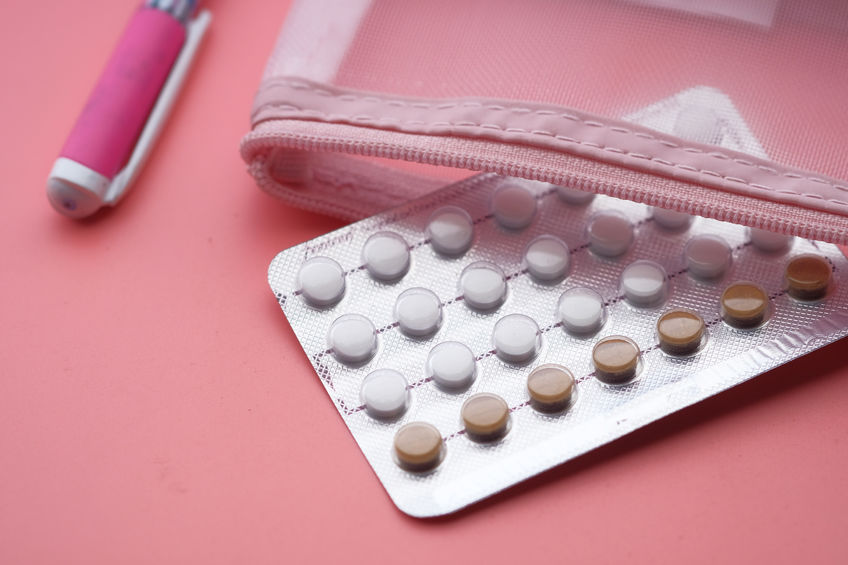With March being Endometriosis awareness month, it is important to have a proper understanding of the disease. Endometriosis is a disease of the female reproductive system. It happens when the uterine lining grows outside the uterus, causing pain, irregular bleeding, and sometimes infertility. One in ten women of childbearing age have this disease, but it is most common in women in their 30s and 40s. If it hasn’t affected you, chances are it has affected a family member or friend.
Endometriosis most often occurs on or under the ovaries, on the fallopian tubes, behind the uterus, on the tissues that hold the uterus in place, or on the bowels or bladder. There are several common signs of this disease that should not be ignored, with chronic pelvic pain being the most common symptom, especially just before and during menstruation.
There is currently no cure for endometriosis, but there are treatment options for related pain and infertility. Healthcare providers consider several factors when determining the best treatment for endometriosis symptoms:
- Age
- Severity of symptoms
- If you want children
- Progression/severity of disease
Here are some common treatments for endometriosis that can reduce pain and discomfort.
Hormone Therapy
Hormone therapy is used to treat endometriosis-associated pain. Hormones come in a pill, a shot or injection, or a nasal spray. These treatments stop the ovaries from producing hormones, including estrogen, and usually prevent ovulation. This may help slow the growth and local activity of both the endometrium and the endometrial lesions. Treatment also prevents new areas and scars from growing, but it will not make existing adhesions disappear.
Gonadotropin-Releasing Hormone (GnRH)
GnRH medicines stop the production of certain hormones to prevent ovulation, menstruation, and the growth of endometriosis. This treatment sends the body into a menopausal state. GnRH medicines come in a nasal spray taken daily, an injection given once a month, or as an injection given every three months.
Most healthcare providers recommend staying on GnRH medicine for only about six months at a time, with several months between treatments if they are repeated. These medications also have side effects, including hot flashes, tiredness, problems sleeping, headache, depression, joint and muscle stiffness, bone loss, and vaginal dryness.
Oral Contraceptives
Oral contraceptives or birth control pills can help make a woman’s period lighter, shorter, and more regular. Women prescribed these hormonal medications often report relief from pain as well.

In general, the therapy contains two hormones: estrogen and progestin, a progesterone-like hormone. Women who can’t take estrogen because of cardiovascular disease or a high risk of blood clots can use progestin-only pills to reduce menstrual flow. Pain relief usually only lasts while taking the pills, while the endometriosis is suppressed. When treatment stops, the symptoms of endometriosis may return. Many women continue treatment indefinitely. Occasionally, some women have no pain for several years after stopping treatment.
Danazol
Danazol is a synthetic form of the male hormone testosterone. It lowers estrogen levels and increases androgens, or male sex hormones, initiating temporary menopause. As a vaginal suppository, this medication shrinks endometrial implants and stops periods, thereby reducing or eliminating pain. Danazol is frequently prescribed only as a last-resort hormonal treatment for severe endometriosis, used when other treatments do not alleviate symptoms.
Pain Medications
The most common pain relievers are nonsteroidal anti-inflammatory drugs (NSAIDS). These pain medications may help with endometriosis pain if the symptoms are mild. Medications range from over-the-counter pain relievers to strong prescription pain relievers.
Surgical Treatments
Some surgical treatments can provide significant, although short-term, relief from endometriosis-related pain, so healthcare providers may recommend surgery to treat severe pain from endometriosis. During the operation, the surgeon will locate any areas of endometriosis and examine the size and degree of growth. They will then remove the endometriosis patches from the body.
It is important to have a complete understanding of what is planned during surgery because some procedures cannot be reversed, and others can affect a woman’s fertility. Therefore, women should discuss all available options with their healthcare providers before making final treatment decisions.
Laparoscopy

During a laparoscopy procedure, the surgeon removes any visible endometrial implants and scar tissue at the same time as the diagnostic procedure. This minimally invasive surgery occurs in hospitals but requires only small incisions and a relatively short recovery time.
A laparoscopy procedure may be recommended when medications for endometriosis fail to relieve symptoms. You may go home the same day of the procedure, and you can expect to return to your normal activities in about two weeks.
Hysterectomy
Hysterectomy is the surgical removal of the uterus and may play a role in treating endometriosis. Most of the time, it is not necessary to remove the ovaries, which is a procedure called an oophorectomy. After a hysterectomy, your period stops, but only removal of the ovaries causes the body to enter menopause. This can lead to the common effects of menopause, including hot flashes and bone density loss, no matter your age.
Doctors can perform a laparoscopic hysterectomy or a traditional “open” surgery. For most hysterectomies, you can go home the same day, and recovery typically takes two weeks. For open surgery, you may need to stay in the hospital at least one night, and recovery can take four to six weeks.
Learning and becoming more aware of female reproductive diseases can save you or a loved one’s life. There are many myths about endometriosis, so it’s important to talk to your doctor about any unusual symptoms or signs of an issue with your reproductive health right away.
At South Avenue Women’s Services, female reproductive health is our top priority. If you are experiencing heavy bleeding, painful periods, or any other symptoms of endometriosis, we are here to listen, examine, and send you in the right direction to receive the best help possible.
Call us today at (585)271-3850 to book an appointment with a certified healthcare professional or to learn more about the services we offer.

